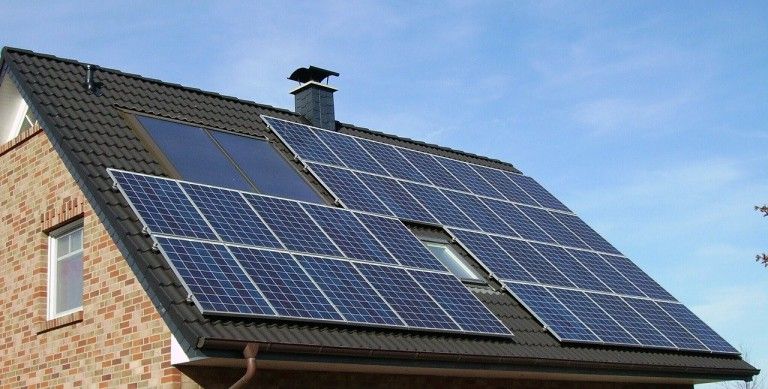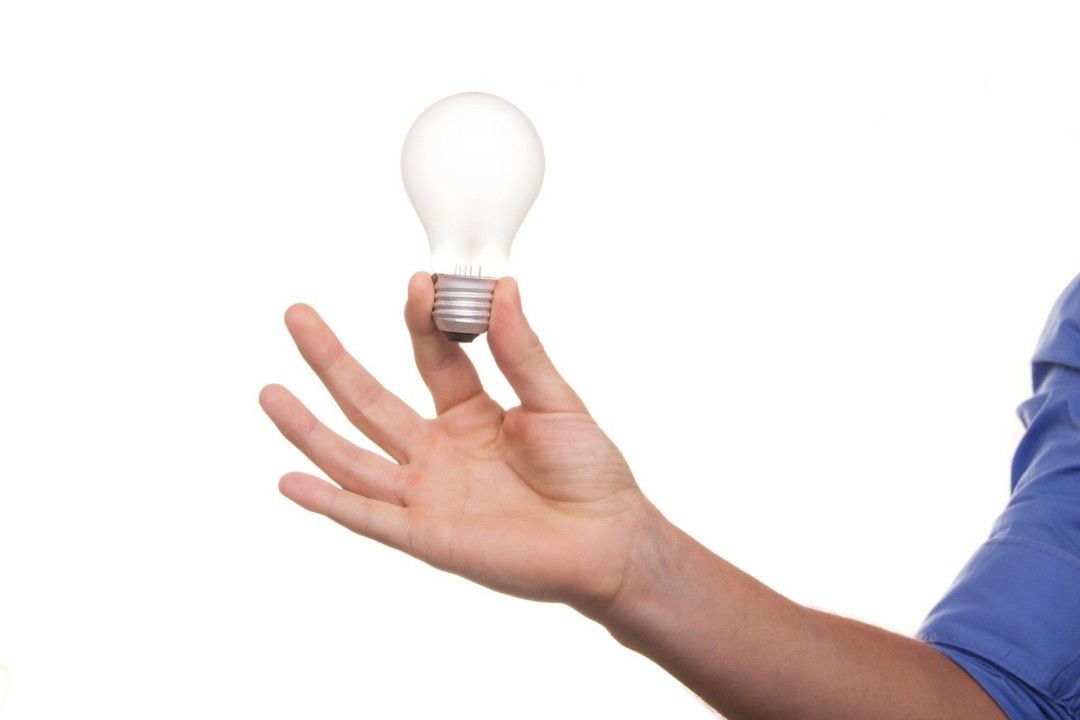Reducing Energy Use
The ideal in a sustainable home is to use renewable energy. But we can't always make the switch overnight. And even when we do switch to entirely renewable systems, power generation still comes at a cost. Reducing energy use, therefore, should be a top priority.
The good news is that even when you have a limited budget (and even when your home is not your own), there are plenty of steps you can take to reduce energy use. In this article, we'll explore some of the things you can do when working on reducing energy use at home.
We'll begin by looking at how you might be able to use renewable energy sources and reduce your reliance on the grid. Then, we'll take a look at the steps you can take to improve household energy efficiency. Finally, we'll look at how you can change your own habits and behaviors to reduce your energy use.
Become More Energy Self-Reliant – Use Renewable Energy
Ideally, we should all be switching to 100% renewable energy. Installing PV solar panels, or other renewable means of power generation is a great idea. But of course, installing renewable systems costs money. It is not something that we can all do right away. Home owners may be able to:
Generate Renewable Energy

- Install solar panels to make the most of the energy provided by the sun.
- Think about passive solar design – creating more windows on the south side of your home (in the northern hemisphere) and making sure there is plenty of thermal mass (stone, brick, ceramics etc.) to absorb the sun's heat are other ways to make the most of the energy from the sun.
- Install a wind turbine.
- Take advantage of geothermal heat.
- Utilise the power of running water if there is a stream or other watercourse nearby.
Purchase Renewable Energy
Even where it is not possible to install your own means of renewable power generation, you may still be able to afford a small additional cost to switch to a renewable energy supplier for your mains electricity.
It is a good idea to research the energy suppliers and energy mix where you live. Choose the best option within your budget that can be found in your area. Increasingly, green, clean energy costs are on a par with more polluting power. So it is essential to make sure you are aware of the options that are available. In the past, it used to be the case that green deals always cost more. That is changing. Green tariff deals are no longer an expensive luxury for those who can afford to pay more for their principles.
A Note on Energy Abundance
There is no shortage of energy on our planet. The sun provides far more than we really need. So the key issue is not to reduce energy use overall. Rather the goal should be to minimise and eventually eliminate all use of fossil fuels and other harmful means of energy generation.
When we talk about the problems on this planet, it is important to remember that energy is not in short supply. We have an abundance of energy in our world, which ultimately derives from our sun. The sun's energy is the reason why life on this planet is possible. Almost all the energy we use to grow plants, heat or cool and light our homes, to manufacture the items we require, to move around – we ultimately have the sun to thank for it all.
The sun provides energy directly, in the photons that pass through our atmosphere. The energy embodied in the sunlight is stored in plants through the process of photosynthesis. Solar energy can also be directly harnessed through the use of solar panels to produce electricity. In addition, solar energy can be stored as heat through thermal mass such as stone walls in passive solar design. Of course we can also directly harness and use the heat and light from the sun as we go about our daily lives. Good design makes it possible to use the sun's energy to heat and light our homes and businesses without having to resort to so many secondary energy sources.
It is important to remember, however, that most of these other energy sources also ultimately derive their energy from the sun. When we burn solid wood or biomass to provide heat, we are simply taking the sun's energy that has been stored in plant life. The same is true when we burn fossil fuels – these too are simply derived from very old plant life. Though in the case of fossil fuels, the cycle of energy transfer is so much longer that it is not a renewable way to get our hands on the energy provided to us in such abundance from the sun.
Make Use of Renewable Energy in Other Ways
Even if you cannot have a full solar installation right now, you may still be able to utilise solar power for some applications in and around your home. There are many ways to harness the power of the sun without excessive financial outlay. You don't need to spend a fortune to go green. For example, you could:
- Run outside solar lighting.
- Install a solar powered security system. (security lighting, alarms and other features can all be run from dedicated solar panels.)
- Use solar power to run a water feature in your garden, or a pump for an aquaponics or irrigation system.
- Purchase another solar powered appliance such as a fan, radio or portable lantern.
- Use the sun's energy to grow your own food and other resources at home. (This is another great way to reduce your overall energy use and carbon footprint.)
- Create or purchase a solar oven to cook food without reliance on the grid.
- Create or buy a solar food dehydrator to help you store food more effectively.
Improve Household Energy Efficiency

Whether or not you have a full renewable power installation right now, some ways in which you can reduce your energy use in your home and improve energy efficiency include:
- Purchasing the most efficient appliances possible. (Ideally A+++)
- Replacing your lightbulbs with low energy LED alternatives.
- Improving the insulation in the walls and roof space of your home.
- Blocking off disused chimneys and unnecessary vents to exclude drafts.
- Making or buying thermal blinds or curtains.
- Making or buying draft excluders to use under doors.
- Switching to sustainable heating or cooling solutions. (For example, using a solid fuel stove run on wood or eco briquettes, or a natural ventilation system.)
- Using thermostats and timers on heating and cooling systems so that they come on only when you really need them, when you are home. And making sure you don't have thermostats set higher (or lower) than they need to be.
Take Energy Saving Measures (Change Your Habits)
Reducing energy use in your home does not always involve financial outlay at all. Sometimes, a simple change of your own behavior is all it takes. Changing your habits can also make a big difference. For example, consider:
- Heating or cooling only the spaces you are using at any one time.
- Popping on a sweater before you automatically crank up the heat.
- Getting into the habit of switching off lights and electrical items when they are not in use.
- Avoiding unnecessary gadgets or appliances.
- Boiling water in a closed kettle rather than in an open pan and placing the lids on pans while cooking.
- Batch cooking so you use less energy in cooking over the course of a week or month.
- Using rustic, low-tech cooking solutions, such as solar ovens described above, a fire pit or eco-wood-fuelled barbecue etc..
- Continue cooking food or keep food hot with a simple DIY hay box oven.
- Using your washing machine less, and air drying your clothes.
- Showering less frequently and for shorter duration.
- Opting for low-tech entertainment options. (For example, enjoy the art of conversation, read a good book, create some art or take up a new sustainable hobby rather than automatically heading online or switching on your TV.)
- Spending more time outdoors – enjoying the wonders of the natural world. It is likely that the less time you spend inside your home, the less energy you will use.
The tips above are not designed as a complete guide to reducing energy use in your home. Rather, they are meant as a starting point to help you move onto a more sustainable path. Each small step we take can make a big difference. By taking things one step at a time, we can all move closer to the sustainable, ethical and eco-friendly future we all want to see.

 United States, EN (USD)
United States, EN (USD) Europe (EUR)
Europe (EUR) Netherlands (EUR)
Netherlands (EUR) France (EUR)
France (EUR) Spain (EUR)
Spain (EUR) United Kingdom (GBP)
United Kingdom (GBP)
